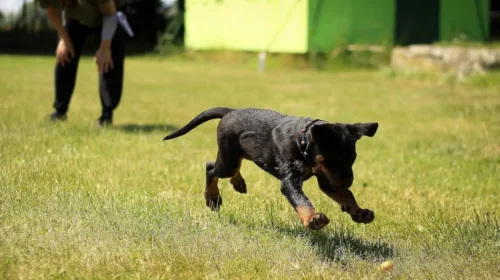Can Cats Get Schizophrenia?
You may have noticed a sudden change in behaviour from cuddling and sweetness to hissing or clawing when your cat was a kitten. What causes these behaviour changes? Some cat parents may be surprised and confused by this sudden shift. Perhaps you have even wondered if cats can have schizophrenia.
Schizophrenia is a mental disorder in which a person has trouble relating to thought, emotion, and behaviour. This can lead to personality shifts, violent behaviour when threatened, and hallucinations. Can cats also be schizophrenic, however? Continue reading to find out if cats can develop schizophrenia or if their behaviour indicates another condition.
Can Cats Get Schizophrenia?
If you have ever spent time with furry feline friends, you will know that their cat behaviour can sometimes warrant a visit to Google. In some cases, you might be tempted to Google “Can cats be schizophrenia?” Sometimes cats can show rapid changes in their personality, going from friendly and purring to angry and biting. Cats can also freeze, staring blankly at ceilings or walls. There is no research or studies that show cats suffer from schizophrenia. We can’t get into their heads enough to find out.
Cats can experience feline hyperesthesia syndrome, an undiagnosed disorder that mimics many signs of schizophrenia. Take, for example:
- FHS can affect male and female cats equally and usually begins early in life.
- FHS can cause cats to shift from happy to upset, even without provocation suddenly.
- FHS cats can exhibit freezing behaviour.
- Both cats with FHS and human schizophrenics have genetic issues. FHS can be found in all cat breeds, but Siamese, Abyssinian, Burmese, and Himalayan are predisposed to FHS.
- FHS could also be a seizure disorder for cats.
FHS in cats is unknown. FHS can be caused by a behavioural problem, seizure disorder, sensory neuropathy, or both. FHS is more common in cats that are anxious or hypersensitive.
Clinical Signs of Feline Hyperesthesia Syndrome
If a cat exhibits any of the clinical signs listed above, it may also suffer from FHS.
- There are episodes of back twitching and skin shivering.
- Twitching and violent tail swishing can be accompanied by skin twitching
- Unexpected growling or aggressive vocalization
- Dilated pupils
- Sudden, unprovoked attacks
FHS is not usually a serious condition. A cat with FHS will often appear completely healthy between episodes. FHS can be treated by reducing stress levels in the home. Stress is known to cause episodes. Environmental enrichment is often enough by itself to successfully reduce episodes, according to the Here’s a list of medical conditions that could mimic schizophrenia symptoms in cats.
- Redirected aggression Cats can become more aggressive or hyperactive for no apparent reason. However, it could be redirected aggression. Redirected aggression, which is common in cats, is when a cat perceives, smells, or hears something frightening or over-stimulating and redirects their anger, fear, or frustration onto someone closest to them, according to the International Association of Animal Behavior Consultants.
- Skin disease Anything that makes a cat itchy such as fleas or mites, can cause skin irritation and rippling that mimics FHS.
- Back pain Anything that causes back pain, such as arthritis or bulging discs, or any other spinal condition, could be considered FHS.
- Hyperthyroidism is A hormonal condition that affects cats and causes excessive thyroid hormone levels. It can cause behavioural changes in cats such as towing, aggression, rippling skin, sleep and appetite changes, and increased aggression.




